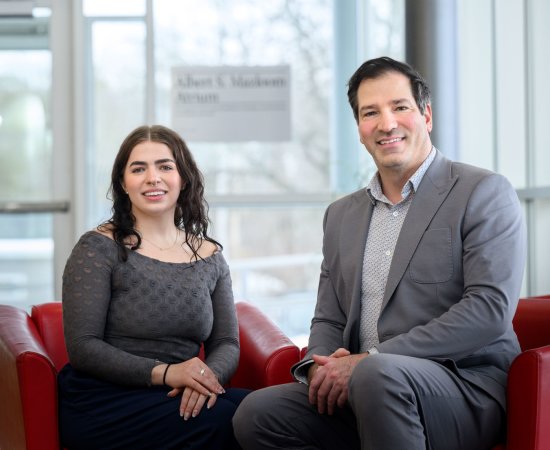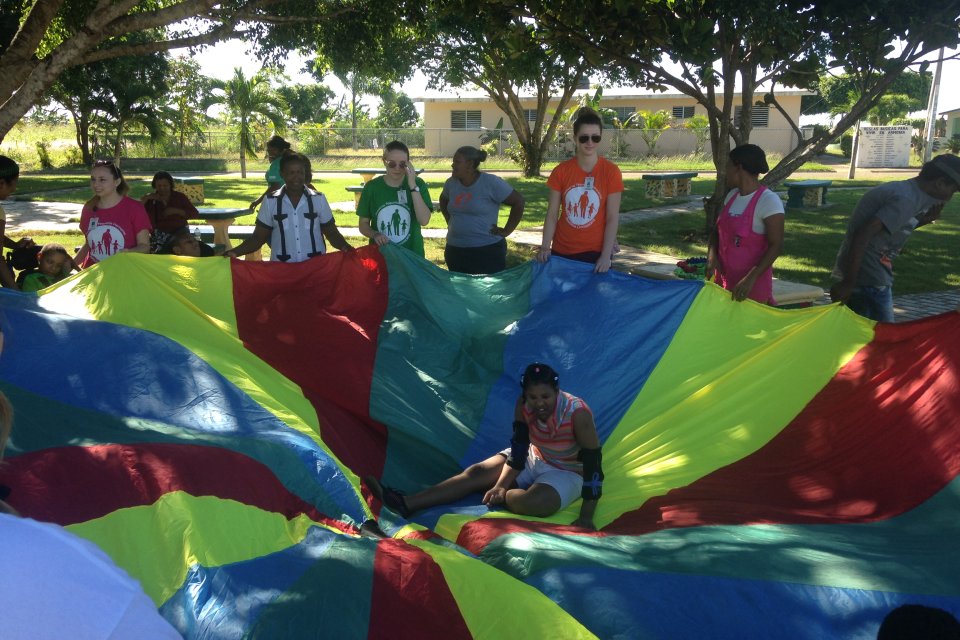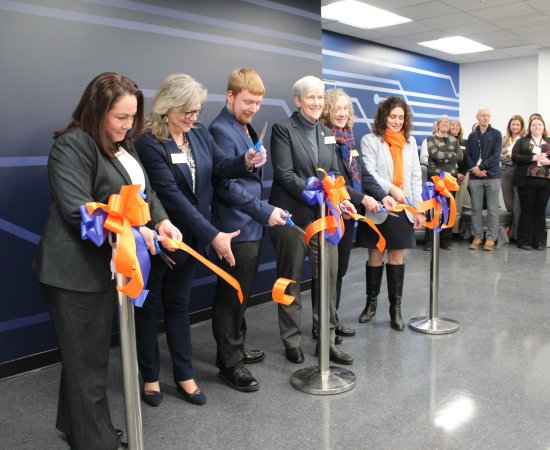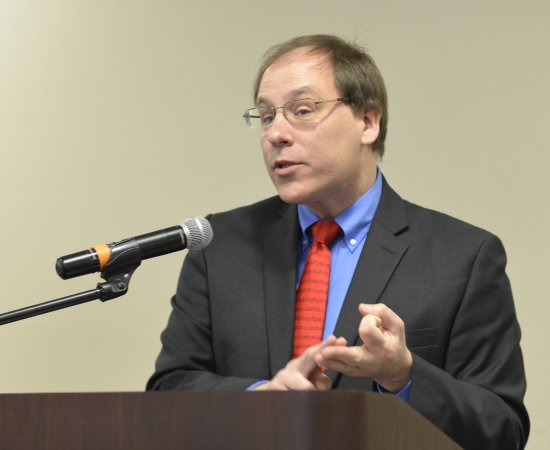
Occupational Therapy students gain real-world experience with field work in Dominican Republic

Utica College Occupational Therapy graduate student Mona Kazour ’19 shares her experience from a trip to the Dominican Republic in late 2018, when she and 30 fellow OT students completed a two-week pediatric fieldwork project in the Caribbean country.
Occupational Therapy: Mona Kazour from Utica College on Vimeo.
When those of us working in the field of occupational therapy tell someone our title, we are often met with confusion and a myriad of guesses: Do we we help people find jobs? Or “therapize” people at work?
In reality, our field encompasses many facets of life, so there is little we do not touch upon. Occupational therapists work with people across the lifespan by using daily activities (occupations) in a therapeutic way to prevent or recover from injury, increase mobility, and improve quality of life.
With those goals in mind, approximately 30 students and I traveled to the Dominican Republic in November 2018 to complete a two-week pediatric fieldwork. We spent one week each at the Asociación Dominicana de Rehabilitación (ADR), a rehabilitation facility in Santo Domingo, and Nuestra Pequeños Hermanos (NPH), a children’s home in San Pedro.
With guidance and assistance from practitioners, professors, and supervisors, we worked with children of varying abilities and ages, from several months, up to 18 years old. We worked in numerous settings and received first-hand experience in navigating an unfamiliar country and a vastly different healthcare system.
I am grateful to the wonderful people we met in the Dominican Republic who made our trip so special.
In both ADR and NPH, we used play as therapy, addressed and explained different positioning needs, such as for feeding and muscle relaxation, and promoted proper lifting and body mechanics for therapists and caregivers. We also had the opportunity to present at a conference to approximately 200 healthcare professionals and discuss best practices with doctors and physiatrists (practitioners of a branch of medicine that aims to enhance and restore functional ability and quality of life to those with physical impairments or disabilities).
At the children’s home, we had the pleasure of working in early intervention (EI) in a school setting and in outpatient services. The center had amazing resources like a vocational center focused on carpentry, upholstery, and recycling, in addition to workshops for creating orthotics, prosthetics, and shoes.
Unsurprisingly, practice in the Dominican is different than what is taught in the United States. With different cultural influences—and the fact that we worked alongside therapists who have been practicing for as long as we students have been alive—being culturally competent and respectful in our approach were priorities. Suggesting slight changes that could improve services seemed to be most successful. For instance, early intervention (EI) in the U.S. is done in the child’s home and natural environment, with family members present. In the Dominican Republic, EI is done in the clinic, while parents are in the waiting room. Using the Spanish we knew and with the help of our translators, we asked if parents could come in for the last few minutes of sessions to see what was being done with their child. We explained how to implement some of the exercises at home. The therapists were receptive to new ideas and placed trust in our abilities and knowledge.
We were often handed a child we knew nothing about, and worked with them for 30-minute sessions. Talk about a nerve-wracking way to apply all the information we learned, muy rápido! While this trip was a valuable learning experience for us as students, I hope the current research and knowledge we were able to share with the therapists positively influences their practice far into the future.
Throughout the entirety of the trip, everyone was so kind and hospitable; when they said that “their home was our home,” they truly meant it. Someone in our group yawned and made a joking comment that she needed coffee, and immediately, a staff member hurried to make coffee for the group. Small gestures like that were touching.
NPH is a both a school and a residence that provides education for students until high school, and housing for those who have challenging home situations that may not be conducive to optimal growth and development. We worked with students who had developmental higher needs and required assistance for most daily activities. They lived in different homes within NPH, and we integrated OT practices into their daily routine.
The children’s caregivers are called “tías” and “tíos,” meaning aunts and uncles, in Spanish. They work four days in a row, followed by three days off. The love and care they pour into their work can be felt instantly. Regardless of how challenging the work is, there is never a shortage of laughter, dancing, and music. A highlight of our time together was playtime with the students. We would have two lines of people, creating a “London Bridge” with our arms for the students to pass through, as we sang and danced. They would finish the line, smiling from ear to ear.
I am grateful to the wonderful people we met in the Dominican Republic who made our trip so special. To be welcomed into a new country and given the opportunity to exchange culture and life stories is a privilege that I hold dear. I learned many lessons on this trip; we should not take for granted the ability to so easily communicate our ideas with one another; that people often have the best intentions but may not be equipped with the adequate resources or education; and most of all, that kindness is universal.
I carry with me the reminder to always be flexible, take every opportunity, and embrace the beauty that stems from simplicity.
More Stories


Utica University Opens New State-of-the-Art Cyber Range

Women’s Sports Receive More Primetime Broadcast Olympic Coverage Than Men’s Sports For The Sixth Olympiad In A Row, Seventh Overall
I would like to see logins and resources for:
For a general list of frequently used logins, you can also visit our logins page.
